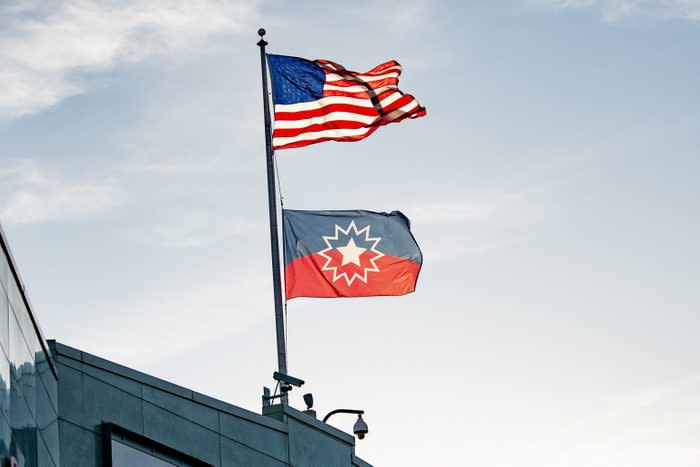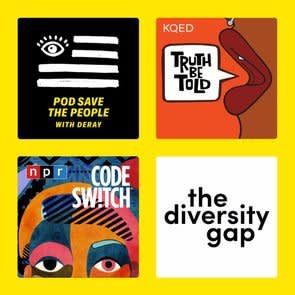What Is Juneteenth and Why Do We Celebrate It?
When the 13 original colonies declared their independence from Great Britain on July 4, 1776, Black Americans remained in chains. Their enslavement continued even after the colonies won their freedom in 1783, after fighting the Revolutionary War. They remained slaves for another 82 years. So, this year, while most Americans are marking the birthday of the United States with burgers, hot dogs, and fireworks, many Black Americans will already have celebrated their independence the previous month, on Juneteenth.
What is the Juneteenth holiday, exactly? Also known as Freedom Day and Emancipation Day, Juneteenth is a national holiday that commemorates an important day in history—June 19, 1865. Understanding its significance is as important as understanding the concepts of institutional racism and anti-racism. Taking the time to do that can also help you learn how to be a true ally to Black Americans and do more than simply show up in the fight against racism.
Why is it called Juneteenth?
Although many Americans may not even be aware of it, Juneteenth recognizes a pivotal turning point in American history. The most popular celebration of Black emancipation in the United States after the Civil War, it commemorates June 19, 1865, the day Union General Gordon Granger, accompanied by approximately 1,800 federal troops, arrived in Galveston, Texas, formerly part of the Confederate States of America, to take over the state and enforce Abraham Lincoln’s Emancipation Proclamation from 1863. The name itself is, of course, a clever mash-up of the month and the date: “June” + “the nineteenth.”
When did slavery end in the United States?
When Confederate General Robert E. Lee surrendered to Union General Ulysses S. Grant at the Appomattox Court House in Virginia on April 9, 1865, the Civil War officially ended. The cease-fire effectively freed slaves throughout the United States, per the decree of the 13th Amendment, which abolished slavery nationwide and passed through both houses of Congress in January 1865. With the arrival of the 24-hour news cycle more than a century away, word of the cease-fire took time to reach some soldiers in the South. The Army of the Trans-Mississippi, for instance, didn’t formally surrender until May 26. Tragically, the United States suffered more military fatalities during the Civil War than any war before or since.
What did Union General Gordon Granger do?
Upon his arrival in Galveston, Granger issued General Order No. 3 at the Headquarters District of Texas. It declared, “The people of Texas are informed that, in accordance with a proclamation from the Executive of the United States, all slaves are free. This involves an absolute equality of personal rights and rights of property, between former masters and slaves and the connection heretofore existing between them, becomes that between employer and hired labor.” It went on to advise freedmen to remain “at their present homes and work for wages,” as they would not be permitted to linger at military posts, and idleness would not be supported there or elsewhere.
Why was Texas so significant?
The state represented slavery’s last stand in the South. After Lincoln issued the Emancipation Proclamation, many slaves in areas where fighting was taking place fled behind Union lines as the U.S. military advanced into the South, gaining their freedom. Since few major battles had been waged in Texas, many slave owners from other states fled there with their slaves, seeking protection of their human property. In historian Leon Litwack’s book Been in the Storm So Long: The Aftermath of Slavery, former slave Allen Manning recalled: “It [looked] like everybody in the world was going to Texas.” Even after Granger’s arrival effectively freed the state’s 250,000 slaves, many owners kept this information from their slaves until the close of the harvest season.
RELATED: Essential Books for Understanding Race Relations in America

When did Juneteenth become a U.S. holiday?
Juneteenth officially became a federal holiday in the United States on June 17, 2021—joining days such as Martin Luther King, Jr.’s birthday and the 4th of July as national holidays. Before it was an official holiday in the United States, many states passed legislation recognizing Juneteenth in some form. It took more than 100 years to become a paid holiday in any of the U.S. states, and when it did, Texas led the way.
After full emancipation in 1865, some slave owners didn’t give up easily. Many slaves who acted on Granger’s announcement ended up paying with their lives. “You could see lots of n— hangin’ to trees in Sabine bottom right after freedom, ’cause they cotch ’em swimmin’ ‘cross Sabine River and shoot ’em,” former slave Susan Merritt recalled in Litwack’s book. Those who persevered celebrated, and one year after slaves in Texas were declared free by Granger’s military order, the first Juneteenth celebration was held. As the years passed and Black people migrated in and out of Texas, the tradition spread. In 1979, Texas became the first state to make Juneteenth an official statewide holiday.
RELATED: 20 Juneteenth Quotes That Will Inspire You
How do you observe Juneteenth?
The next obvious question after “What is the Juneteenth holiday?” is how do we celebrate it. Readings of the Emancipation Proclamation, religious ceremonies, the singing of spirituals, and, of course, traditional African American food marked the early celebrations. Black people dressed in their best clothing to celebrate their independence day. Whites in Southern states tried to intervene by forbidding Blacks to use their public spaces, so Black people congregated around rivers and lakes and eventually were able to raise enough money to buy celebration spaces such as Emancipation Park in Houston and Booker T. Washington Park in Mexia, Texas. People can also fly the Juneteenth flag in observation of the day.
It is celebrated in the 21st century in much the same way it’s been celebrated from the beginning, with many now wearing red, black, and green, in honor of the Pan-African flag.
What traditional food is served on Juneteenth?
Barbecue chicken and meat, collard greens, sweet potatoes, watermelon, red soda water, and tea cakes, the official Juneteenth dessert, are all on the menu. Red food is especially significant on Juneteenth, as the color represents the bloodshed and valor of Black American slaves. In addition to the expected red cuisine (which includes watermelon and red velvet cake), hot links made from ground beef are dyed red, and Big Red Soda, which is made in Waco, Texas, and hibiscus teas are on tap to wash everything down.
The culinary spreads may differ from state to state, and they cover everything from chargrilled oysters in Mississippi to baked beans with meat in Kansas to vinegar-tinged pulled pork in North and South Carolina to turkey legs in New Orleans to black-eyed peas in Oakland, California. For dessert, pies—especially strawberry-flavored ones—never go out of Juneteenth style.
Where can I donate for Juneteenth?
Episodes of the ABC TV series black-ish and the Netflix series #blackAF have addressed the question “What is the Juneteenth holiday?” But if you want to do more than recognize it from the comfort of your couch, you can honor June 19 by donating time and/or money to Black Lives Matter organizations, the National Association for the Advancement of Colored People (NAACP), and the Smithsonian National Museum of African American History and Culture, among many other organizations dedicated to equality and empowerment for Black Americans. Next, find out why Kwanzaa is important to the African American community, as well.
Sources:
WUSA9: “These states now recognize Juneteenth, but what are their other holidays?”
Juneteenth.com: “General Order No. 3”
History.com: “Texas passes a bill becoming the first state in the nation to make Juneteenth an official state holiday”
Texas State Library and Archives Commission: “Texas Remembers Juneteenth 2020”
The Red & Black: “How to celebrate Juneteenth from home”
Podcasts About Race You Need to Hear
Black Businesses to Support
Quotes in the Fight Against Racism
The post What Is Juneteenth and Why Do We Celebrate It? appeared first on Reader's Digest.



